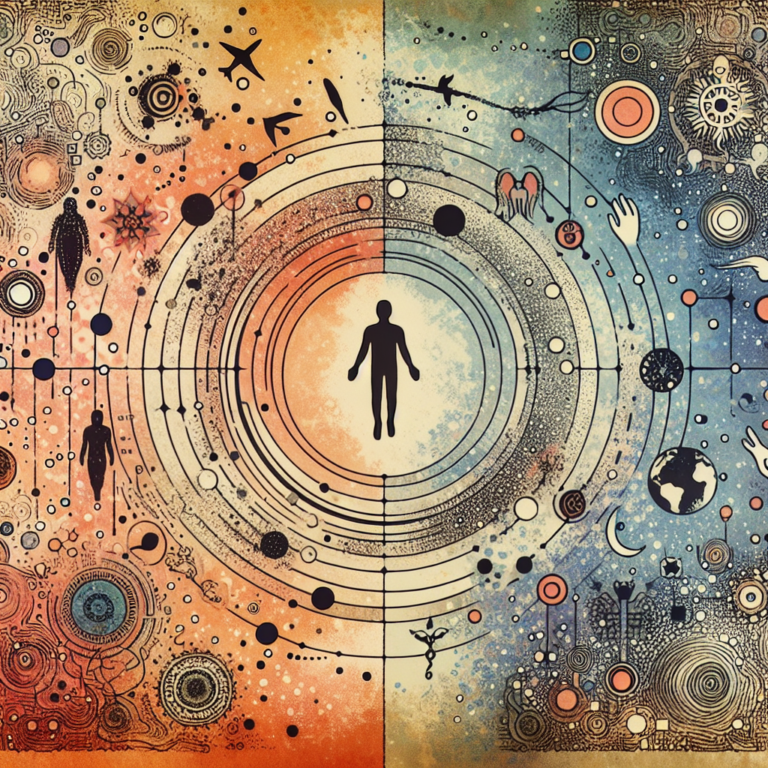Karma is an ancient concept rooted deeply in various philosophical and spiritual traditions, particularly in Hinduism and Buddhism. While it can be broadly defined as the law of cause and effect, its implications are profound and far-reaching. Many individuals find themselves caught in cycles of negativity, largely due to the effects of negative karma. Understanding this concept is not just an intellectual exercise; it can be a crucial part of achieving personal growth, healing, and transformation.
What is Karma?
At its core, karma refers to the actions and intentions of an individual and the consequent reactions they provoke. The notion is simple: good actions lead to positive results, while negative actions yield adverse consequences. However, the idea of karma is much more than a straightforward moral equation. It is interconnected with the notions of time, intention, and the universe’s inherent balance.
Karma is often viewed as a moral compass that guides individuals in their journey through life. Good deeds — acts of compassion, generosity, and kindness — accumulate positive karma, enhancing one’s life experience. On the other hand, harmful actions, whether deliberate or unintentional, generate negative karma, binding individuals in cycles of suffering and dissatisfaction.
The Cycle of Negative Karma
Understanding the cycle of negative karma requires recognizing the two primary components: the actions that create it and the reactions they prompt. This cycle has several layers:
Actions: Every action stems from an intent, and that intent profoundly influences the quality of karma produced. When individuals act out of anger, jealousy, or selfishness, the resulting negative karma can perpetuate a cycle of suffering. Examples include betrayal, dishonesty, or actions that harm others either physically or emotionally.
Reactions: Negative karma leads to various outcomes that can affect an individual in multiple ways. These consequences may manifest immediately or can take time to become evident. They might lead to negative life circumstances, troubled relationships, or emotional distress.
Manifestation of Suffering: The accumulation of negative karma often leads to recurring patterns, where individuals find themselves facing similar challenges repeatedly. This cyclical nature of negative karma is exacerbated by the emotional responses it incites — anger may lead one to lash out, creating even more negative karma that keeps the cycle spinning.
- Inability to Learn: Being caught in a cycle of negative karma can hinder personal growth. Individuals may fail to recognize their role in these cycles, instead falling into victim mentality, further perpetuating the cycle of negative energy and negative actions.
The Psychological Impact of Negative Karma
The impacts of negative karma extend beyond merely spiritual dimensions; they can profoundly affect psychological well-being. Addressing the emotional consequences of negative karma is essential for healing. People may experience feelings of guilt, anxiety, and a sense of hopelessness, which can exacerbate existing issues and contribute to mental health disorders.
For instance, someone who has caused harm may grapple with guilt and shame, leading to low self-esteem, anxiety, or depression. This altered state of mind can lead to isolation, making it difficult to forge healthy relationships or seek help. Recognizing the impact of negative karma is crucial to breaking free from this cycle.
Breaking the Cycle: How to Transform Negative Karma
Breaking the cycle of negative karma involves conscious effort and a commitment to change. Below are some steps individuals can take:
Self-Reflection: Engage in deep introspection to recognize behaviors and thought patterns that may contribute to negative karma. Journaling, meditative practices, or therapy may assist in this exploration.
Taking Responsibility: Understanding that one’s actions contribute to the cycle is pivotal. Accepting responsibility for past actions is the first step toward impactful change.
Forgiveness: Whether it involves forgiving oneself or seeking forgiveness from others, releasing past grievances can greatly lighten one’s karmic load.
Practicing Kindness and Compassion: Acts of kindness and compassion can create positive karma, helping to offset the accumulation of negative karma. Engaging in volunteer work, offering support to someone in need, or simply performing small acts of kindness can create positive ripples.
Mindfulness Practices: Engaging in mindfulness and meditation can help cultivate awareness of one’s thoughts and actions, providing space to pause before reacting negatively.
Letting Go of Toxic Patterns: Identify relationships or habits that feed negative karma cycles. Changing toxic relationships or unhealthy patterns enables personal freedom and transformation.
- Seeking Guidance: Sometimes, seeking outside help from spiritual teachers, therapists, or mentors can provide additional perspective and tools for transformation.
Conclusion
Being caught in a cycle of negative karma can feel overwhelming, yet the power for change lies within each individual. Acknowledging the impact of one’s actions, and making conscious efforts to change those behaviors, leads to personal growth and the potential for a more fulfilled life.
The beauty of karma is its inherent potential for second chances; individuals can rewrite their stories through intention, awareness, and active choices. By transforming negative karma into positive actions, one can escape from the cycle of negativity and cultivate a life enriched with compassion, understanding, and harmony.
FAQs
What is karma in its simplest form?
Karma is the law of cause and effect, where an individual’s actions (good or bad) lead to corresponding consequences.
Can karma affect multiple lifetimes?
In some philosophical and spiritual traditions, it is believed that karma can carry over from one life to another, creating a cyclical pattern of actions and consequences across different lifetimes.
How can I know if I have negative karma?
Feelings of persistent emotional distress, recurring negative patterns in life, or strained relationships may indicate the presence of negative karma.
Is there a way to erase negative karma?
While you cannot erase negative karma entirely, you can create positive karma through compassionate actions, self-reflection, and personal growth, which can help counteract negative effects.
How long does it take for karma to manifest?
The time it takes for karma to manifest can be immediate or may take many years, depending on various factors, including the nature of the actions and the recipient’s circumstances.
Can I help others break their negative karma?
While you can inspire and guide others through your actions, ultimately, each individual must take responsibility for their actions and choices to break free from their negative karma.
It seems like your message might have been cut off. Could you provide more details or clarify what you would like to ask or discuss? I’m here to help!, #Caught #Cycle #Understanding #Impact #Negative #Karma, #Caught #Cycle #Understanding #Impact #Negative #Karma, 1735437180, caught-in-a-cycle-understanding-the-impact-of-negative-karma





